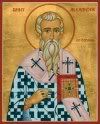A true definition of Theologian from Metropolitan Hierotheos Vlachos:
...theologians of the Church should be called "those who have reached theoria (vision of God)", who formerly purified their heart from passions or at least are struggling to purify them.
Further:
…the beholders of God, specifically those who follow the whole methodology of the Church and attain perfect faith -the illumination of the nous.
From the pen of Fr. John Romanides:
The true Orthodox theologian is the one who has direct knowledge of some of God's energies through illumination or knows them more through vision. Or he knows them indirectly through prophets, apostles and saints or through scripture, the writings of the Fathers and the decisions and acts of their Ecumenical and Local Councils. The theologian is the one who through this direct or mediated spiritual knowledge and vision knows clearly how to distinguish between the actions of God and those of creatures and especially the works of the devil and the demons.
And from St. Neilos:
"If you are a theologian, you will pray truly. And if you pray truly, you are a theologian"
From a true Theologian:
...He makes my disobedience His own as Head of the whole body. As long then as I am disobedient and rebellious, both by denial of God and by my passions, so long Christ also is called disobedient on my account. … But when all things shall be subdued unto Him on the one hand by acknowledgment of Him, and on the other by a reformation, then He Himself also will have fulfilled His submission, bringing me whom He has saved to God. For this, according to my view, is the subjection of Christ; namely, the fulfilling of the Father's Will. But as the Son subjects all to the Father, so does the Father to the Son; the One by His Work, the Other by His good pleasure, as we have already said. And thus He Who subjects presents to God that which he has subjected, making our condition His own. Of the same kind, it appears to me, is the expression, "My God, My God, why hast Thou forsaken Me?" It was not He who was forsaken either by the Father, or by His own Godhead, as some have thought, as if It were afraid of the Passion, and therefore withdrew Itself from Him in His Sufferings (for who compelled Him either to be born on earth at all, or to be lifted up on the Cross?) But as I said, He was in His own Person representing us. For we were the forsaken and despised before, but now by the Sufferings of Him Who could not suffer, we were taken up and saved. Similarly, He makes His own our folly and our transgressions; and says what follows in the Psalm… For in His character of the Word He was neither obedient nor disobedient. For such expressions belong to servants… But, in the character of the Form of a Servant, He condescends to His fellow servants, nay, to His servants, and takes upon Him a strange form, bearing all me and mine in Himself, that in Himself He may exhaust the bad, as fire does wax, or as the sun does the mists of earth; and that I may partake of His nature by the blending. Thus He honours obedience by His action, and proves it experimentally by His Passion. For to possess the disposition is not enough, just as it would not be enough for us, unless we also proved it by our acts; for action is the proof of disposition. …by the art of His love for man He gauges our obedience, and measures all by comparison with His own Sufferings, so that He may know our condition by His own, and how much is demanded of us, and how much we yield, taking into the account, along with our environment, our weakness also.
St. Gregory the Theologian
And a swift kick in the pants from Khomyakov:
...having rejected legitimate tradition, it has deprived itself of every right to condemn a man who, while acknowledging the divinity of the Holy Scriptures, might not find in them the refutation of the error of Arius or Nestorius
Aleksei Stepanovich Khomyakov


No comments:
Post a Comment